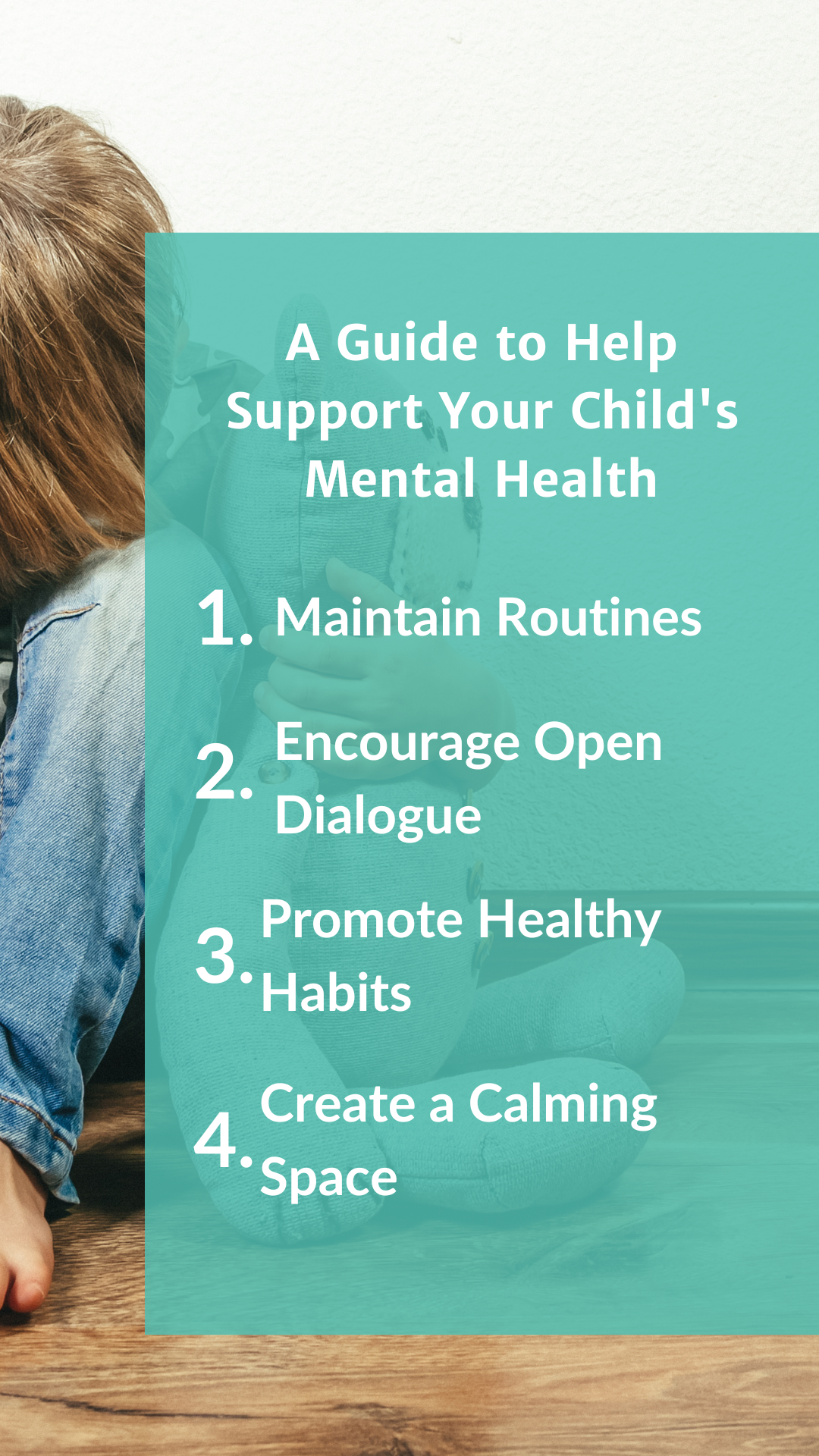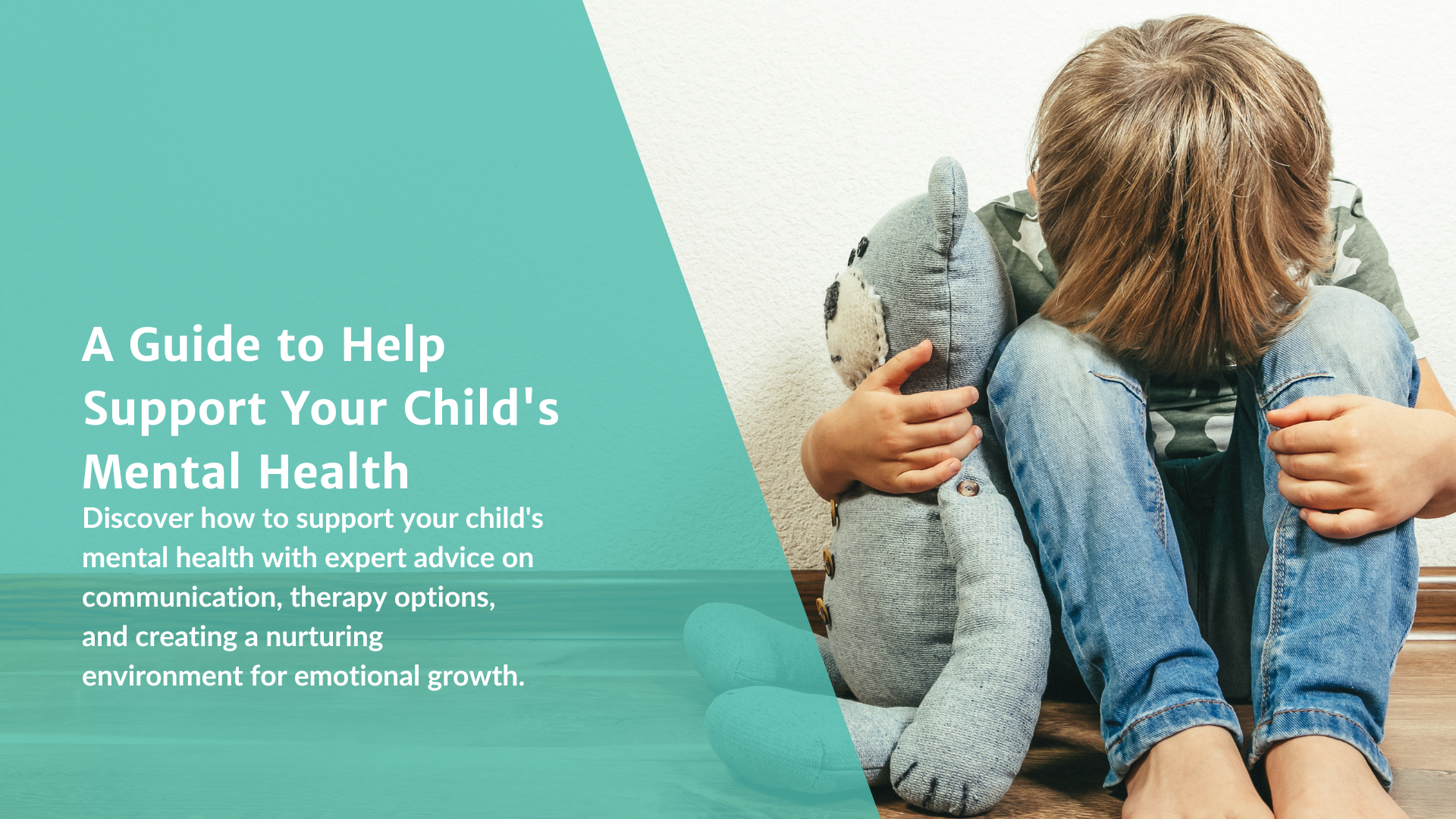When a child faces mental health struggles, it can be hard to spot the signs. Unlike adults, children often express anxiety or depression in subtle ways, making it easy for concerns to go unnoticed. As a parent, caregiver, or family member, it’s normal to feel unsure about how to help. The good news is that with the right guidance, you can offer the support they need to thrive. In this guide, we’ll cover the essentials of child mental health, how to identify warning signs, and effective steps you can take to support their journey toward well-being.
Recognizing the Signs of Mental Health Struggles
Child mental health concerns can show up in many ways, and not every child will speak up about what they’re feeling. Keep an eye out for these common signs:
- Changes in behavior or mood swings
- Withdrawing from activities they once enjoyed
- Difficulty focusing or declining school performance
- Physical symptoms like unexplained headaches or stomachaches
- Unusual levels of anxiety, sadness, or frustration
Opening the Door to Communication
Once you suspect your child might be struggling with their mental health, the next step is to open a line of communication. Children need to know that it’s okay to talk about their feelings and that they won’t be judged or dismissed. Creating a safe and open space for your child to express what they’re going through is one of the most powerful ways you can support them.
Start by asking gentle questions about how they’re feeling and what might be troubling them. Use language that validates their emotions, such as “I understand that you’re feeling upset” or “It’s okay to feel worried sometimes.” Reassure them that seeking therapy or other forms of therapy support can be a healthy step towards feeling better.
Seeking Professional Therapy Support
Therapy can be an essential tool in helping children who are facing mental health challenges. A therapist specializing in child mental health provides a secure, understanding space for them to explore their emotions. This environment encourages open expression and helps your child develop effective coping strategies to manage their feelings in healthier ways.
However, therapy isn’t just beneficial for the child; it can also empower parents with a deeper understanding of their child’s needs. Family therapy is a valuable option, allowing parents and children to work collaboratively with a professional to enhance communication, foster emotional connection, and navigate challenges together.
Supporting Mental Health at Home
Therapy is a key part of supporting a child’s mental health, but a caring home environment makes all the difference. Consider these thoughtful strategies to foster well-being:
- Encourage Open Dialogue: Make it clear to your child that their feelings matter and that they can talk to you at any time. Active listening is a key component of this. When your child shares their emotions, validate their feelings without jumping to conclusions or offering immediate solutions.
- Maintain Routines: Consistency can be a source of comfort for children, especially during stressful times. Sticking to a daily routine for meals, bedtime, and other activities can help them feel more secure and grounded.
- Promote Healthy Habits: Good nutrition, physical activity, and sufficient sleep are all essential for mental health. Encouraging your child to take care of their body can positively influence their emotional well-being.
- Create a Calming Space: Sometimes, children need a quiet place where they can relax and decompress. Consider setting aside a special spot in your home where your child can go to unwind, whether it’s a cozy reading nook or a space with calming music or art supplies.
Understanding the Importance of Mental Health Awareness
Mental health awareness is growing, but it’s still common for parents and caregivers to feel uncertain about when to seek help. It’s important to remember that seeking therapy is not a sign of failure or weakness. Rather, it’s a proactive step towards ensuring your child’s well-being. Therapy can offer a safe, judgment-free zone for children to work through their feelings, whether they are dealing with depression, anxiety, or other mental health concerns.
Furthermore, being aware of your child’s mental health means recognizing that it can fluctuate over time. Just as children grow physically, their mental health needs may evolve. Regular check-ins and open communication can help you stay in tune with how your child is feeling and address any issues before they escalate.
Building a Support Network
In addition to therapy, it’s helpful to build a support network for your child. This might include family members, teachers, or trusted friends who can offer encouragement and guidance. Letting your child know that they have a group of people who care about them can be a source of comfort during difficult times.
If your child is struggling socially, connecting them with supportive peer groups – whether in person or online – can help them feel less isolated. Many children find solace in knowing they are not alone in their experiences, especially when dealing with mental health challenges.
Addressing Stigma Surrounding Therapy and Mental Health
Unfortunately, mental health stigma can sometimes prevent families from seeking the therapy support their child needs. It’s important to challenge this stigma by normalizing conversations about mental health and therapy. Let your child know that asking for help is a sign of strength and that therapy is a tool many people use to feel better.
In some cases, children may feel embarrassed or worried about what others might think. As a parent, you can model positive attitudes toward therapy by speaking openly about its benefits and being transparent about the steps you’re taking to support your child’s well-being.
Conclusion: You Are Not Alone
Supporting your child’s mental health is an ongoing process, and there’s no one-size-fits-all solution. However, by being attentive to their needs, encouraging open communication, and seeking professional therapy support when necessary, you can provide your child with the foundation they need to thrive. Remember that you are not alone in this journey because help is available, and with the right guidance, your child can overcome the challenges they face.
At Mente Counseling, we specialize in supporting families through every step of the mental health journey. Our experienced therapists are here to provide the therapy support your child needs to feel understood, valued, and empowered. Reach out to us today to learn more about how we can help your child navigate their mental health challenges with confidence.
FAQs
What is the leading cause of mental health in children?
At what age does mental illness typically start?
Does mental illness come from the mother or father?
What are the mental health conditions of children?

